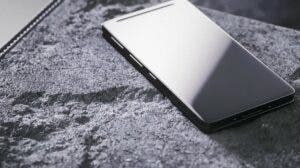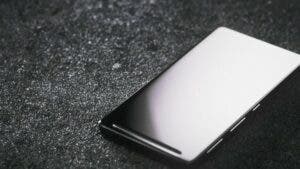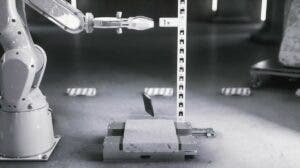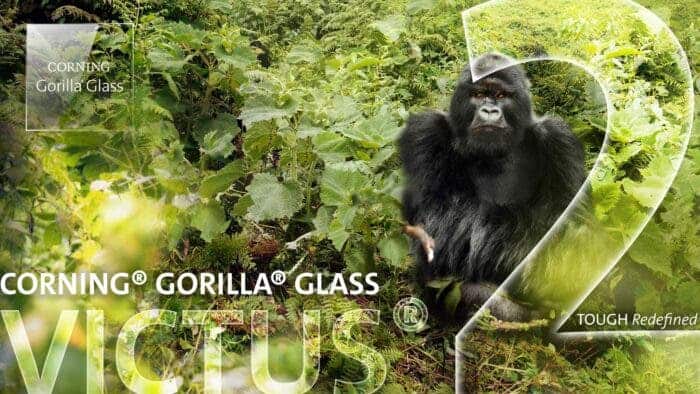Corning has just announced the next iteration of its tough and strong glass, the Gorilla Glass Victus 2. And it is here to offer significant improvements over the original version, which made a lot of noise when it came out.
Gorilla Glass Victus emphasized a lot on the drop resistance, which was already pretty great in the regular Gorilla Glass version. This time, Corning wants to take things to the next level. However, the real question is, can Corning deliver?
Large Screens and Heavy Phones Are the Biggest Challenges for Corning
Needless to say, smartphones are getting larger and larger. Now, any phone that is less than 6 inches is considered small-pocket-friendly (remember the days when 5-inch phones were considered too big?). Well, although a large screen is great for consumers now, it is a challenge for Corning.
The thing is, the longer the screen’s diagonal measurement, the more stress the glass has to go through when you drop it on the floor. This ultimately made Corning feel the need to make Gorilla Glass stronger in order to keep up with the latest smartphone design.
The case is pretty much the same for the weight. Phones are now significantly heavier in comparison. To give you a perspective on the weight, phones nowadays are 10 to 15 percent heavier than the ones from four years ago. And more weight translates to the phones witnessing more force when they hit the ground.
Corning did eventually catch up with the design by releasing the Gorilla Glass Victus. This version of the glass saw a massive improvement in the scratch and drop resistance. And it seems like Corning is ready to push its limit with the Gorilla Glass Victus 2.
Gorilla Glass Victus 2 Is More Prepared for Drops on Asphalt and Concrete
Gorilla Glass Victus 2 is set to be tougher, stronger, and better than Victus 1. This time, Corning focused more on asphalt and concrete surfaces, which can leave dainty marks on the screen. However, most of the priority went to concrete as it basically contains a mixture of sand, rocks, and cement. What difference do these elements make?
Gizchina News of the week

Well, this mixture creates an uneven surface on the top, which means even a piece of gravel sticking out from the surface can put all the impact force on the screen. And when you put too much force in a very small area of glass, it is bound to shatter or break.
In comparison, smooth floor tiles found at home spreads the force evenly. And that is why the chances of the smartphone’s glass breaking on such surfaces are always lower than concrete and asphalt.

The same thing is applicable to asphalt. It can, too, leave your phone’s glass shattered into multiple pieces if you drop it from a certain height. And by improving the strength rating on these two surfaces, Corning can basically make smartphones more resistant to cracking or shattering when dropped.
How Much of an Improvement Can the Gorilla Glass Victus 2 Offer?
For testing purposes of the Gorilla Glass Victus 2, Corning utilizes 80-grit sandpaper for the concrete and 180-grit sandpaper for asphalt. And for drops, Corning utilized lab machinery. According to Corning, the Gorilla Glass Victus 2 can survive on concrete when it is dropped from 1 meter.

On the other hand, for asphalt, the Gorilla Glass Victus 2 can survive when dropped from 2 meters from the ground. From these data, you can say Corning Gorilla Glass Victus 2 can surely offer better overall protection to smartphones.
However, you can not compare apples to apples, as there is not much data available for the Gorilla Glass Victus. From the product information sheet, you can just extract one crucial thing. That is, the glass offers improved drop performance for up to 2 meters. Besides that, there is no mention of asphalt or concrete surfaces.





